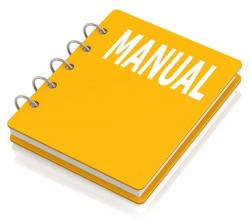Hyundai Construction Crawler Loader R510LC Factory Service & Shop Manual
Catalog:
Model:
Complete workshop & service manual with electrical wiring diagrams for Hyundai Construction Crawler Loader R510LC. It's the same service manual used by dealers that guaranteed to be fully functional and intact without any missing page.
This Hyundai Construction Crawler Loader R510LC service & repair manual (including maintenance, overhaul, disassembling & assembling, adjustment, tune-up, operation, inspecting, diagnostic & troubleshooting…) is divided into different sections. Each section covers a specific component or system with detailed illustrations. A table of contents is placed at the beginning of each section. Pages are easily found by category, and each page is expandable for great detail. The printer-ready PDF documents work like a charm on all kinds of devices.
EXCERPT:
CONTENTS
SECTION 1 GENERAL
Group 1 Safety Hints - - 1-1
Group 2 Specifications - - - 1-9
SECTION 2 STRUCTURE AND FUNCTION
Group 1 Pump Device - - - 2-1
Group 2 Main Control Valve - - - 2-22
Group 3 Swing Device - - - 2-47
Group 4 Travel Device - - 2-69
Group 5 RCV Lever - - - 2-80
Group 6 RCV Pedal - - - 2-87
SECTION 3 HYDRAULIC SYSTEM
Group 1 Hydraulic Circuit - - - 3-1
Group 2 Main Circuit - - 3-2
Group 3 Pilot Circuit - - - 3-5
Group 4 Single Operation - - 3-13
Group 5 Combined Operation - - - 3-23
SECTION 4 ELECTRICAL SYSTEM
Group 1 Component Location - - - 4-1
Group 2 Electrical Circuit - - - 4-3
Group 3 Electrical Component Specification - - - 4-20
Group 4 Connectors - - 4-28
SECTION 5 MECHATRONICS SYSTEM
Group 1 Outline - - - 5-1
Group 2 Mode Selection System - - - 5-3
Group 3 Automatic Deceleration System - - 5-6
Group 4 Power Boost System - - - 5-7
Group 5 Travel Speed Control System - - 5-8
Group 6 Automatic Warming Up Function - - 5-9
Group 7 Engine Overheat Prevention Function - - 5-10
Group 8 Anti-Restart System - - 5-11
Group 9 Self-Diagnostic System - - - 5-12
Group 10 Engine Control System - - - 5-20
Group 11 EPPR(Electro Proportional Pressure Reducing) Valve - - 5-22
Group 12 Monitoring System - - 5-25
SECTION 6 TROUBLESHOOTING
Group 1 Before Troubleshooting - - 6-1
Group 2 Hydraulic and Mechanical System - - 6-4
Group 3 Electrical System - - - 6-24
Group 4 Mechatronics System - - 6-40
SECTION 7 MAINTENANCE STANDARD
Group 1 Operational Performance Test - - - 7-1
Group 2 Major Components - - 7-21
Group 3 Track and Work Equipment - - - 7-33
SECTION 8 DISASSEMBLY AND ASSEMBLY
Group 1 Precaution - - - 8-1
Group 2 Tightening Torque - - 8-4
Group 3 Pump Device - - - 8-7
Group 4 Main Control Valve - - 8-31
Group 5 Swing Device - - - 8-44
Group 6 Travel Device - - 8-92
Group 7 RCV Lever - - - 8-128
Group 8 Turning Joint - - 8-143
Group 9 Boom, Arm and Bucket Cylinder - - - 8-148
Group 10 Undercarriage - - 8-165
Group 11 Work Equipment - - 8-177
SECTION 9 COMPONENT MOUNTING TORQUE
Group 1 Introduction Guide - - - 9-1
Group 2 Engine System - - 9-2
Group 3 Electric System - - 9-4
Group 4 Hydraulic System - - - 9-6
Group 5 Undercarriage - - 9-9
Group 6 Structure - - 9-10
Group 7 Work Equipment - - 9-14
…
1. REMOVAL AND INSTALL OF MOTOR REMOVAL
Lower the work equipment to the ground and stop the engine.
Operate the control levers and pedals several times to release the remaining pressure in the hydraulic piping.
Loosen the breather slowly to release the pressure inside the hydraulic tank.
Escaping fluid under pressure can penetrate the skin causing serious injury.
When pipes and hoses are disconnected, the oil inside the piping will flow out, so catch it in oil pan.
Disconnect hose assembly (2).
Disconnect pilot line hoses (3, 4, 5, 6, 7).
Sling the swing motor assembly (1) and remove the swing motor mounting bolts (8).
Motor device weight : 61 kgf·m (135 lbf·ft)
Remove the swing motor assembly.
When removing the swing motor assembly, check that all the piping have been disconnected.
INSTALL
Carry out installation in the reverse order to removal.
Bleed the air from the swing motor.
Remove the air vent plug.
Pour in hydraulic oil until it overflows from the port.
Tighten plug lightly.
Start the engine, run at low idling and check oil come out from plug.
Tighten plug fully.
Confirm the hydraulic oil level and check the hydraulic oil leak or not.





